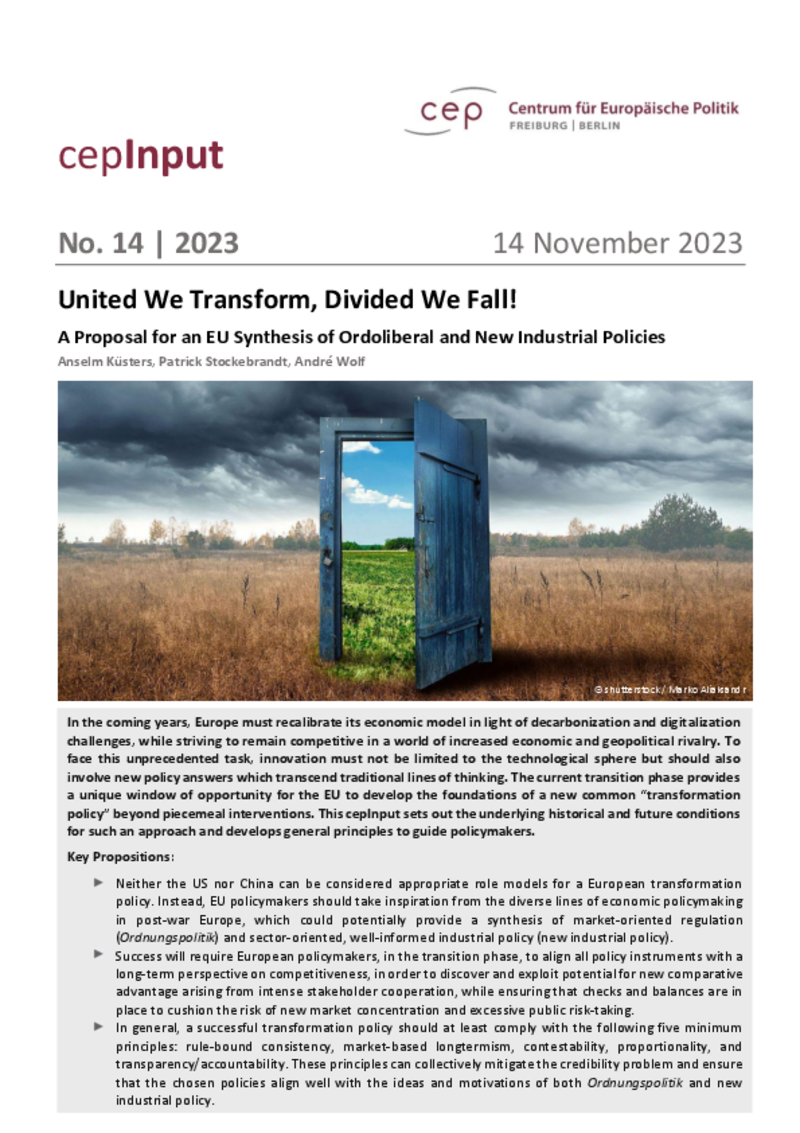
Economic & Fiscal Policy
United We Transform, Divided We Fall! (cepInput)
cepInput
"The variety of challenges facing the European economic model has a significant impact on the conceptual debates about economic policy," says cep economic historian Anselm Küsters, who compiled the study with cep economist André Wolf and cep lawyer Patrick Stockebrandt. He argues that ordoliberal principles (Ordnungspolitik) have been repeatedly adapted to challenges throughout the history of the Federal Republic of Germany. "What is understood as beneficial competition always depends on the zeitgeist, economic opportunities and risks as well as political conditions," says Küsters.
"In a crisis situation, there is a great need for intellectual reorientation. Such a need cannot be satisfied by means of political rhetoric alone, but requires a solid scientific foundation," says Wolf. In general, a political approach that ensures that fact-based arguments take precedence over manipulative narratives is more important than ever for Europe today.
According to the cep researchers, consistent and experience-based concepts for an EU transformation policy are needed. "Europe, with its wealth of political experience and intellectual diversity, is exactly the right place to develop such concepts," emphasises Stockebrandt.
The cep study defines five basic principles that such concepts for a new transformation policy must fulfil: rule-based consistency, market-oriented long-termism, conditionality, proportionality, and political accountability. Successful transformation policy, which reconciles regulatory principles and new industrial policy needs with one another, should not be understood as an autonomous process. "It requires a permanent dialogue with the affected stakeholders in order to overcome the public-private information gap and provide feedback to policymakers," says Wolf. Continuous monitoring of the goals in conjunction with transformation policy measures is indispensable.
Download PDF
| United We Transform, Divided We Fall! (cepInput) (publ. 11.14.2023) | 890 KB | Download | |
 | |||




